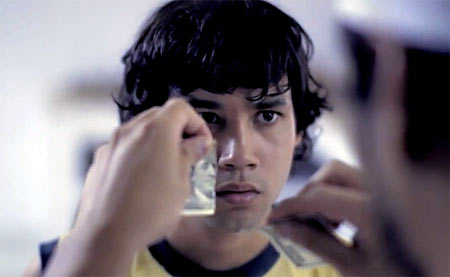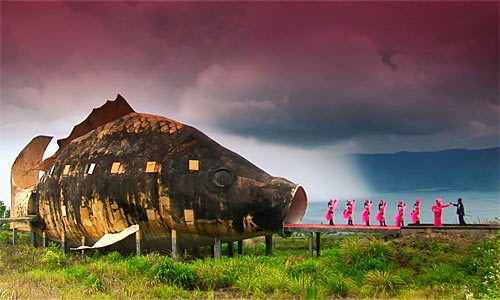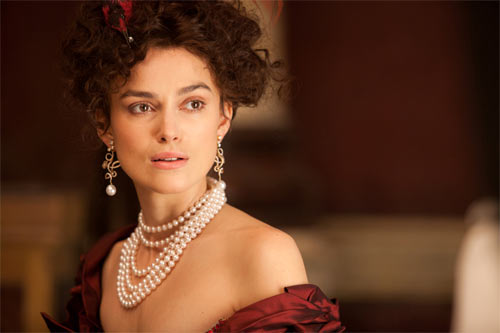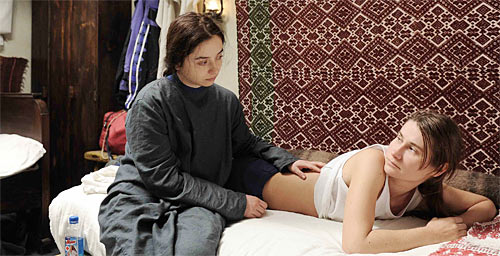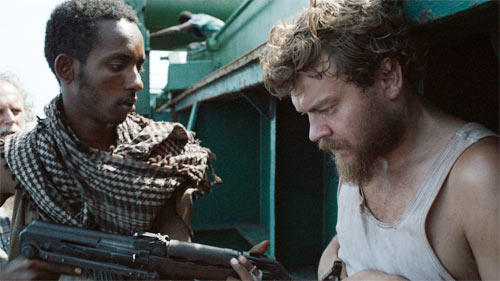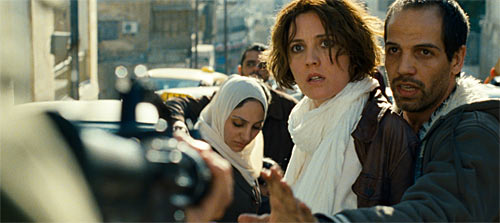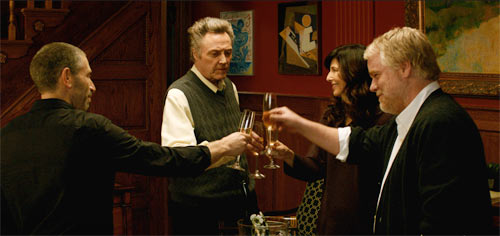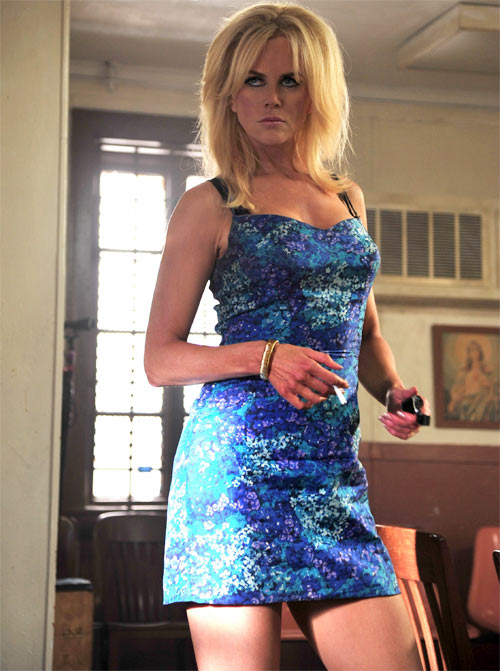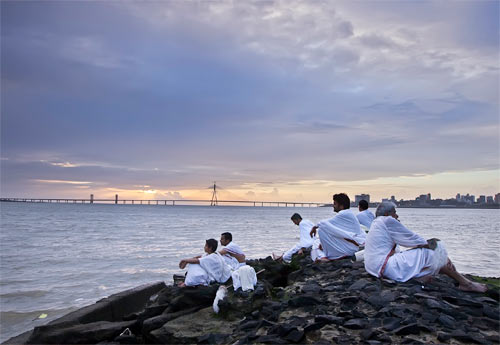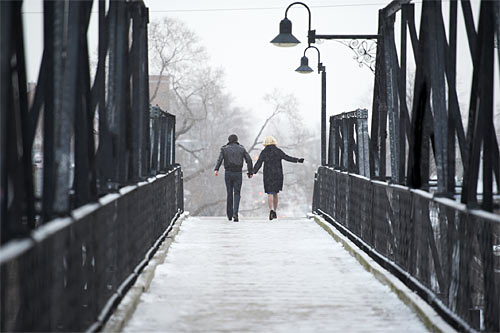 | « Back to article | Print this article |
Must Watch Films at The Toronto Film Festival
Over 400 films, 11 days of screenings, world premiers, red carpets, celebrities, panel discussions, parties and business deals makes the Toronto International Film Festival the best film event in North America, if not in the world.
Toronto is a very film friendly city and the September weather is just perfect to mingle and talk movies on the streets or be locked up in comfortable dark theatres and explore new works.
There is so much to see, and festival enthusiasts missed out on quite a few good films. Careful planning, sometimes rescheduling, did help me to catch some of the best films from around the world at the festival.
Here is my list of the Top 10 Must Watch movies at TIFF, in alphabetic order.
7 Boxes
From Paraguay, a tiny country of 6.6 million people and no history of cinema, comes this intensely thrilling film about Victor, a teenager, who wants to make enough money to buy a used cell phone with a video camera.
He takes on a job transporting seven wooden boxes with mysterious contents, on a wheelbarrow to a particular location. Along the way, in a crowded marketplace, Victor has to dodge hordes of bad guys (and girls), cops, and ruthless killers.
First-time filmmakers Juan Carlos Maneglia and Tana Schembor have created a gripping thriller with terrific editing, soundtrack and believable performances by charming actors, and unique to the settings of a small country. So in a chase sequence, instead of fancy cars -- as one would see in a Bourne or a Bond film -- Mangelia and Schembor use wheelbarrows in a crowded marketplace, packed with customers and vendors.
7 Boxes is a rare kind of film that one hopes to discover at an international film festival. The film should play well in art-house theatres and has the potential of becoming a cult hit.
The Act of Killing
Documentary filmmaker Joshua Oppenheimer performed the impossible task of winning the confidence of a group of men, who were involved in the mass scale killings of communists in Indonesia in the mid-1960s.
The killers had the backing of the US interests in Indonesia.
In the film, they take pride in re-enacting their horrendous acts as they make their own film celebrating a period of Indonesia's dark history.
Oppenheimer's film is tough to watch, as the talk of killings takes its toll on the filmmaker, the audience and the killers themselves. It is harsh reminder of how cruel human beings can be. To the director's credit, The Act of Killing remains unflinching and matter of fact, seeming almost surrealist.
Veteran documentary filmmakers Errol Morris and Werner Herzog were so impressed with The Act of Killing that they came on board as executive producers. Herzog gives the film the ultimate compliment in the following quote: 'I have not seen a film as powerful, surreal, and frightening in at least a decade... unprecedented in the history of cinema.'
Anna Karenina
Director Joe Wright has tackled a British classic (Pride and Prejudice) and modern masterpiece (Atonement).
But this time he takes on one of the most well read novels of the 19th century -- Leo Tolstoy's Anna Karenina. There have been at least 11 film adaptations of the story of adultery in the Russian high society, and many television productions as well.
In his 2012 version, Wright places the classic on stage, but then he frees himself from the theatrical settings. The stage opens into bigger spaces -- from restaurants, to homes, fields and trains stations. It is a grand scale production with striking visuals and opulent production design that will remind the viewers of Baz Luhrmann's Moulin Rouge and the late David Lean's Doctor Zhivago.
At other times, Wright captures the small dramas of Tolstoy's characters Anna (played by the director's favourite star, a stunning Keira Knightly), her husband Alexie Karenin (Jude Law) and Count Vronsky (Aaron Taylor-Johnson). Also look out for Indian actress Tannishtha Chatterjee.
Beyond the Hills
In the recent years, Romanian cinema -- freed from decades of control by the communist government -- has made a major splash at international film festivals.
Beyond the Hills won two awards at the Cannes Film Festival -- Best Screenplay for director Cristian Mungiu (4 Months, 3 Weeks and 2 Days), and Best Actress nods to the film's two leads Cristina Flutur and Cosmina Stratan.
Mungiu has directed a disturbing and sad film about two young women, friends from an orphanage, but now separated. One joins a closed monastery at an orthodox church while the other moves to Germany, where we sense she has had a rough time. The friends try to reconnect but their separate journeys cannot bring them together.
Beyond the Hills shows a world we know little about, exploring much that is wrong with cults and orthodox religions and reminds us there is so much that needs to be corrected in our world.
A Hijacking
Danish film A Hijacking, directed by Tobias Lindhom (who wrote the script for The Hunt – a hit at this year's Cannes, Telluride and Toronto film festivals), takes the story from today's front pages.
A Danish ship with a small international crew is heading to Mumbai when it is hijacked by Somali terrorists, who demand a ransom of $15 million.
Most of the film is about the negotiations between the owners of the company, dressed in comfortable clothes in their office in Denmark and the representative of the terrorists and the Danish cook of the ship. As days lead to weeks and months, tensions build up. There is shortage of food, conditions are miserable on the ship. The negotiations also take a toll on the Danish negotiators.
Eventually no one comes out winner, well perhaps other than the terrorists who walk away with the final negotiated amount of $3.3 million.
A Hijacking is gripping, tense and boasts of some very fine acting.
Inch'Allah
This fall a series of high quality Arab-Israeli films are making the rounds of film festivals.
The French Canadian film Inch'Allah is produced by the team that gave us two terrific Oscar nominated films, Monsieur Lazhar and Incendies.
Inch'Allah is the story of the Palestinian-Israeli conflict as seen through the eyes of a Canadian doctor who lives in Tel Aviv, but crosses the hostile border everyday for her job at a clinic in Ramallah. She makes friends in Israel and the West Bank but is never fully able to come to terms with the horrors of the permanent war-like situation.
Inch'Allah is a powerful film that lifts us from the comfort of our lives and throws us into the midst of a political turmoil that seems endless but requires urgent attention.
A Late Quartet
There has been a lot of buzz about director Paul Thomas Anderson's new film The Master with Oscar worthy performances by Phillip Seymour Hoffman and Joaquin Phoenix. The Master played at TIFF but is already out in theatres in select cities in the US.
We got to see another film with Hoffman at TIFF called A Late Quarter, a stunning piece about the relationships between the members of a New York City-based quartet -- that includes a husband and wife team (Hoffman and the fantastic Catherine Keener) and the cellist (a warm supporting role played by the usually intense Christopher Waken).
Walker's character -- older than his colleagues -- decides to retire after his wife's death and underlying tensions between the other members start to come to the surface.
Directed by Yaron Zilberman, A Late Quartet is a moving film about people one can connect with, middle-aged artists living in Manhattan with lives no different than many of ours. It has rich with terrific acting and is a very rewarding cinematic experience.
The Paperboy
In 2009, Lee Daniels gave us a devastating film about African Americans living on the edge in New York City. His film, Precious, won an Oscar for Mo'Nique and made a star out of Gabourey Sidibe.
Daniels' new film The Paperboy has a bigger star cast with Nicole Kidman, who has never been as sexy as here, plus Matthew McConaughey (his third 2012 film, after Magic Mike and Killer Joe) and Zac Efron (his second film this season after At Any Price).
In The Paperboy, McConaughey plays a journalist in Florida investigating the wrongful imprisonment of a man (a very creepy John Cusack). Efron is his younger brother and Kidman the girlfriend of the imprisoned man, who she has never met.
A coming-of-age story for Efron's character, The Paperboy is layered with issues of race in America's south and police corruption. The film is also charged with a lot of sexual energy, with Efron hanging out in his white underwear, flirting with the family's African American housekeeper, and dreaming of sex with the older Kidman (in a hilarious, yet shocking scene Kidman urinates on Efron after he is bitten by jelly fish while swimming). McConaughey has another secret -- he is gay and attracted to African American men.
Daniels has made just the right kind of edgy Hollywood film, where big stars play against type and that makes the experience all the more fun.
Ship of Theseus
In a year packed with 15 works by Indian filmmakers -- Deepa Mehta's Midnight's Children, Mira Nair's The Reluctant Fundamentalist, Ritwick Ghatak's Meghe Dhaka Tara, and 10 indies from Mumbai in the City-to-City section, Anand Gandhi's sparse and quiet Ship of Theseus, with unknown actors, was the most unlikely film to stand out.
Yet, the three story structured Ship of Theseus -- a blind young Egyptian photographer, a Jain monk who opposes medical testing on animals and eventually requires a liver transplant, and a stock broker who is exploring the illegal sale of a slum dweller's kidney to a wealthy man in Sweden -- is essentially a film about lonely people trying to do good and connect with the world we live in. The physical hurdles they face and their final connection makes Ship of Theseus a beautifully moving composition with a lot of gentleness and humanity.
For a while now, Indian indie films have been playing at international film festivals with a limited degree of success in reaching audiences and critics but Ship of Theseus has just the right elements for it to reach art-house audiences outside India.
Stories We Tell
Sarah Polley started her career as a young actress on Canadian television and film. She was 27 when her directorial debut, Away From Her, a heartbreaking story about Alzheimer and loss, was nominated for two Oscars (Julie Christie for Best Actress and Poley for Best Adapted Screenplay).
In her new heart-wrenching documentary Stories We Tell, Polley turns the camera on her family -- her father Michael, and her siblings (two are half siblings from her late mother's Diane's first failed marriage).
In looking at her family and trying to remember her mother, Polley finally turns the camera on herself, as she realises that the man she has known as her father may not be her biological parent.
Stories We Tell has a kind of story that fiction writers cannot make up. The film is bound to make the viewer cry. But ultimately, this remarkable film speaks about love, forgiveness, moving on and not holding on the past.
